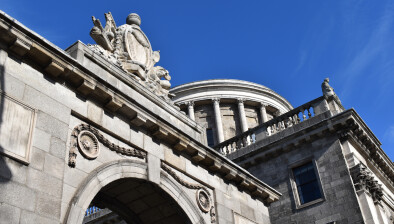Court of Appeal: Newspaper’s appeal on inaccurate ‘tax defaulters’ publication dismissed

The Court of Appeal has determined that Iconic Newspapers Ltd could not rely on the defence of qualified privilege in respect of a publication which erroneously stated that the respondent featured on Revenue’s ‘tax defaulters list’.

About this case:
- Citation:[2024] IECA 62
- Judgment:
- Court:Court of Appeal
- Judge:Mr Justice Brian O'Moore
Delivering judgment for the Court of Appeal, Mr Justice Brian O’Moore found that there was nothing exceptional about the appellant’s situation so as to allow it to rely on the defence of qualified privilege, finding that if the defence operated as contended for by the appellant, “qualified privilege would provide a full defence to any publisher who honestly shares information with the public at large about, say, the commission of a serious criminal offence even if this information is incorrect”.
Background
Following its receipt of the “tax defaulters list” from Revenue, the appellant newspaper company published an article which erroneously stated that the respondent had made settlements with Revenue for under-declared tax liabilities relating to three companies under his name in the sum of €183,595.
The respondent having nothing to do with the named companies, nor having any involvement in the settlements, sued for defamation.
In the High Court, the appellant claimed that the words complained of were published on an occasion of qualified privilege as per s.18 of the Defamation Act 2009, in which it was acting in good faith by publishing the article as part of its duty to report on matters of public interest.
The trial judge found that no occasion of qualified privilege arose, on the basis that what had been said by the Limerick Leader was fundamentally inaccurate.
The jury awarded the respondent €75,000 in damages, leading the trial judge to award Circuit Court costs only to the respondent.
The appellant appealed on the findings made in respect of qualified privilege, with the respondent appealing the award of costs.
The Court of Appeal
Mr Justice O’Moore noted that most of the appellant’s arguments on appeal “resolved themselves into a contention that Iconic Newspapers had a social duty or social interest — within the meaning of s. 18(7) of the Act — to communicate to the general public information about the persons on the Tax Defaulters List. Equally, it was argued, the general public had a social duty or social interest in receiving such information. It was argued that this was the case even if the information was wrong…”
Mr Justice O’Moore accepted the submissions on behalf of the appellant that the “occasion” for the purpose of qualified privilege would have been the publication by the Limerick Leader of the list of tax defaulters, differing from the trial judge’s suggestion that the occasion was the publication by the Revenue Commissioners of that list.
Following a consideration of the jurisprudence in the area and of the 2009 Act itself, Mr Justice O’Moore found that the publication by the appellant was not an occasion of qualified privilege. The court highlighted that both the Court of Appeal and the High Court have suggested that the appropriate standards to which publishers are to be held are those set out in Reynolds v Sunday Times Newspapers [2002] 2 AC 127, and as per Kinsella v Kenmare Resources [2019] IECA 54, the defence of qualified privilege “is only available in respect of private communications and does not generally extend to mass media publications due to the fundamental requirement of reciprocal duty and interest”.
The court opined:
“If it is the case that the Reynolds defence represented a version of qualified privilege which has survived the enactment of the 2009 Act by virtue of s.18(1), that does not avail Iconic Newspaper as they have not pleaded it. I also believe that it is not a defence which could in any event have been successfully pleaded by Iconic Newspapers given its failure to take any steps to verify the information, to seek any comment from the plaintiff, or to include in the article the gist of the plaintiff’s side of the story…If, on the other hand, the Reynolds defence was not an aspect of the law of qualified privilege in Ireland prior to the enactment of the Defamation Act in 2009, then there is no Irish authority supporting the application of the defence of qualified privilege to publications addressed to the world at large.”
Finding that there was “nothing exceptional about this situation” such that the appellant could rely on qualified privilege in respect of its publication ‘to the world at large’, Mr Justice O’ Moore considered that if qualified privilege operated as contended for by the appellant, “it would mean that qualified privilege would provide a full defence to any publisher who honestly shares information with the public at large about, say, the commission of a serious criminal offence even if this information is incorrect. This scenario is not only ‘unpalatable’, to use the phrase of counsel for Iconic Newspapers; it would be arguably inconsistent with the constitutional entitlement to the protection on an individual’s good name…”
The court continued: “Such a dramatic change to the law is something which, if intended by the legislature, one would have expected to see spelt out in the clearest of terms; see Murray J. in Heather Hill Management v An Bord Pleanala [2022] IESC 43.”
Referring to defence of ‘fair and reasonable publication’ in s.26 of the 2009 Act, Mr Justice O’Moore considered inter alia that “unfortunately for Iconic Newspapers, its construction of s.18(2) renders s.26 entirely redundant and… is at loggerheads with the operation of one aspect of s.18(3). Even adopting an approach towards the construction of the 2009 Act which aims at internal consistency, s.18(2) does not bear the meaning contended for by the appellant.”
Turning to the respondent’s appeal in respect of the High Court’s costs order, Mr Justice O’Moore stated:
“I do not think that the trial judge gave proper consideration to the exceptional question of law which, I have found, he correctly decided. Equally, I do not think that he gave appropriate consideration to the fact that the difference between the award by the jury to Mr. Bird and the figure which would have entitled him to High Court costs was gossamer thin. Each of these two factors should have carried more weight in the trial judge’s exercise of discretion with regard to costs. In my view, a proper consideration of these matters leads to a conclusion that the successful plaintiff should be awarded costs on the High Court scale.”
Conclusion
Having concluded that “the defence of qualified privilege as provided for by s.18(2) can only be available in exceptional circumstances where there is publication to the world at large, and no such special circumstances were established in this case”, the Court of Appeal dismissed the appellant newspaper’s appeal, and allowed the respondent’s appeal on the question of costs.
Bird v. Iconic Newspapers Limited [2024] IECA 62










